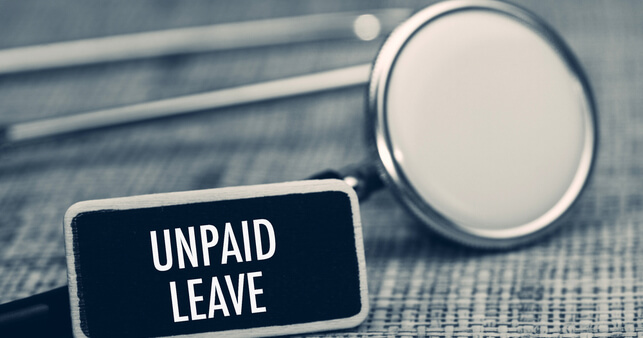
Leave without pay
Leave without pay is a type of unpaid leave employers may offer to employees if both parties agree. An employee may request leave without pay if they wish to take an extended holiday and do not have enough annual leave accrued, or for a personal matter which is not covered by any other type of official leave.
While an employer does not have to pay wages to an individual who takes unpaid leave, it is important to note that leave without pay does not mean termination of employment, and some other entitlements may still apply.
Reasons for taking unpaid leave
There are various reasons why an employee may request to take unpaid leave, including:
• extended travel
• study
• family obligations beyond what is covered in other leave provisions
• pregnancy, where an employee has not worked long enough to qualify for maternity leave
• illness, where the employee does not have sufficient sick leave entitlement to cover the period of illness
Agreeing to unpaid leave
Employers are not obliged to provide unpaid leave to their employees, and the leave only becomes official if both parties agree. If an employer does not agree to the leave and an employee takes it anyway, there may be reason to start a disciplinary procedure.
How does unpaid leave affect annual leave entitlements?
Employees receive their annual leave entitlement one full year after starting employment. If an employee takes an unpaid leave that is longer than one week, there are two options for employers:
• An employer may choose to exclude the unpaid leave from the 12 month entitlement period. This means if an employee takes three weeks of unpaid leave, the date they receive their annual leave entitlements will push out to one year and two weeks from the date they commenced employment; or
• An employer may choose to disregard the unpaid leave, and give an employee their full annual leave entitlement after 12 months, regardless of any unpaid time taken. If the employee then takes annual leave, when calculating gross earnings for the 52 weeks prior to the period of annual leave, if the employee took a period of unpaid leave which was for a duration of more than one week within that period, the employer would reduce the divisor of 52 by the number of weeks in excess of one week that the employee took as unpaid leave. For example, if the employee took a period of three weeks unpaid leave, the divisor would be reduced to 50.
What is an employee entitled to during leave without pay?
During unpaid leave an employee would not automatically receive any public holiday pay, sick leave or bereavement leave. Benefits are calculated based on the question of whether that day is one that the employee would usually work. If so, the employer is obligated to pay the employee.
For example, if an employee is on unpaid leave because they are sick and don’t have enough sick leave, a public holiday during this period would be a day they would ordinarily work. In this case, they would be entitled to payment for the public holiday.
On the other hand, if an employee is on unpaid leave because they are taking a long holiday, a public holiday during this time would not be considered a day they would usually work. In this case, they would not be entitled to payment for the public holiday.
Employers should take the time to get informed about their specific industry and situation. For, any advice on unpaid leave, Employsure’s workplace relations specialists are available for advice on 0800 568 012.



